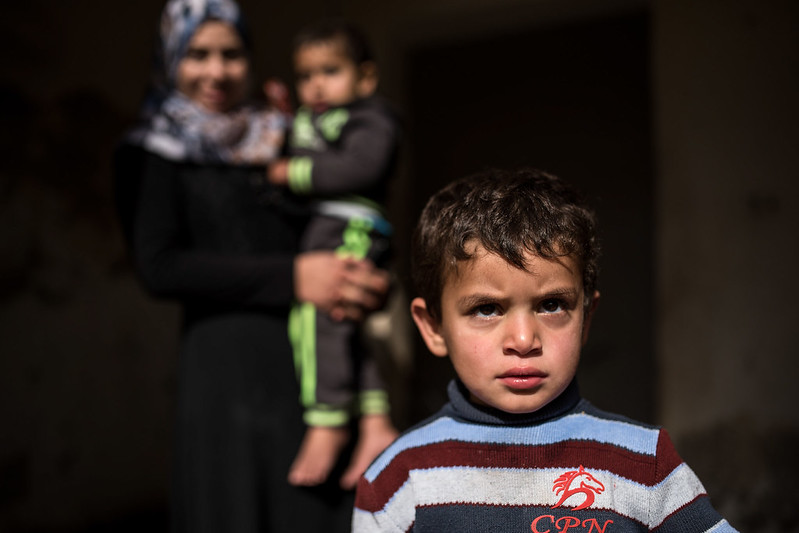Israel is the one helping Jordan with the water. Stop lying for the Jordanians inability to make the desert bloom as Jews have done with Israel.
And the Hashemites should never have taken 78% of the Mandate for Palestine, which never belonged to the newly arrived Hashemites.
-------------
Poverty in Jordan is the outcome of many factors shaping the country’s economic struggles. The kingdom has a scarce amount of
natural oil stock in its eastern desert and the country is
heavily reliant on foreign importing to meet its energy needs, constituting up to 30% of its total imports.
The country also happens to experience a wide range of issues, such as the inability to meet half of the
population’s water demand, only 2.6% of its
land being arable, an
average labor participation rate of 38.1%, an
unemployment rate of 23.9%, millions of refugees from
Iraq, Palestine and Syria and a debt crisis consisting of 95% of the kingdom’s gross domestic product. All of these issues exacerbate poverty in Jordan.
Effects of Poverty on Jordan’s Youth
While poverty in Jordan affects people of all ages, a look at Jordan’s children tends to give a grim view. The population of children in Jordan is around 3 million. Of this number, 0.6%
endure multidimensional impoverishment, which occurs when one suffers multiple deprivations at one time, and includes facets such as health, education and living standards. Poor quality of work, hazardous environments, disempowerment and the threat of violence also form part of these deprivations.
Poverty in Jordan disproportionately affects the refugee populations. The number of Syrians in Jordan living below the country’s poverty line is 78%. Among Syrian children, 94% of those younger than 5 experience multidimensional poverty. When it comes to malnutrition, 17% of the
children face malnourishment due to poverty in Jordan. In addition, the infant mortality rate is 31 per 1,000 children.
Green Innovation
A significant issue that relates to poverty in Jordan is the issue of resource shortage. Addressing this is one way to combat some of the effects of poverty in Jordan. To overcome these challenges, the Hashemite Kingdom is spending more than
$5 billion on renewable energy so that the nation can move toward self-sufficiency. Solar energy is
already saving money for the local population with one religious clerk saying the bills necessary to generate electricity for his mosque used to be up to $18,350 per year. Now, that cost has been reduced to near zero.
In 2012, Jordan launched 11 renewable energy projects in the Maan province alone. Since then, the growth of the kingdom’s reliance on green power has resulted in 11% of the nation’s total
power deriving from renewables in 2019. It is estimated that 15% of today’s Jordanian households have
solar-based water heating systems. This investment in renewable energy will make Jordan less dependent on foreign oil markets. It will also drive economic growth through job creation — an estimated 40 million new jobs could exist by 2050. Meeting energy demands and achieving self-sufficiency while reducing the costs of power and igniting economic growth will help to alleviate poverty in Jordan. This will have a direct effect on children, the most powerless and vulnerable to the effects of poverty in Jordan.
– Mustafa Ali
Meeting energy demands while reducing the costs of power and igniting economic growth will help to alleviate poverty in Jordan.

borgenproject.org
The refill system may be used more frequently with water exports to Jordan on the rise, he said. It can raise the lake's level by half a metre each year, according to Mekorot.
Water was a major component in the peace treaty the neighbours signed in 1994. The arrangement was for Israel to supply Jordan with 50 million cubic meters of drinkable water a year. That was doubled in late 2021.
Both countries are active participants in the pact, even as they accuse each other of exacerbating the broader problem of water shortages through the management of their shared and connected rivers.
Jordanian and Israeli officials have traded blame over river levels, reservoirs and the progress of a separate scheme to desalinate water from the southern Red Sea - all potentially highly charged issues in a tense region where water is scarce.
But there has been progress.
Around a year ago Israel and Jordan agreed to partner in a project that would see Jordan build 600 megawatts of solar generating capacity to be exported to Israel in return for the additional water supply.
Jordan’s minister of water and irrigation at the time said that climate change and an influx of refugees exacerbated Jordan’s water challenges, but that there are opportunities for regional cooperation to solve it.
When the floodgates are open, a torrent of water gushes into a dry river bed and races to the shore of the Sea of Galilee, a biblical lake in northern Israel that was being lost to drought and the growing population around it.

www.reuters.com

 www.hagerty.senate.gov
www.hagerty.senate.gov



/cloudfront-us-east-2.images.arcpublishing.com/reuters/TX65AGX2PJOSLF4FYRVC7TJCLM.jpg)